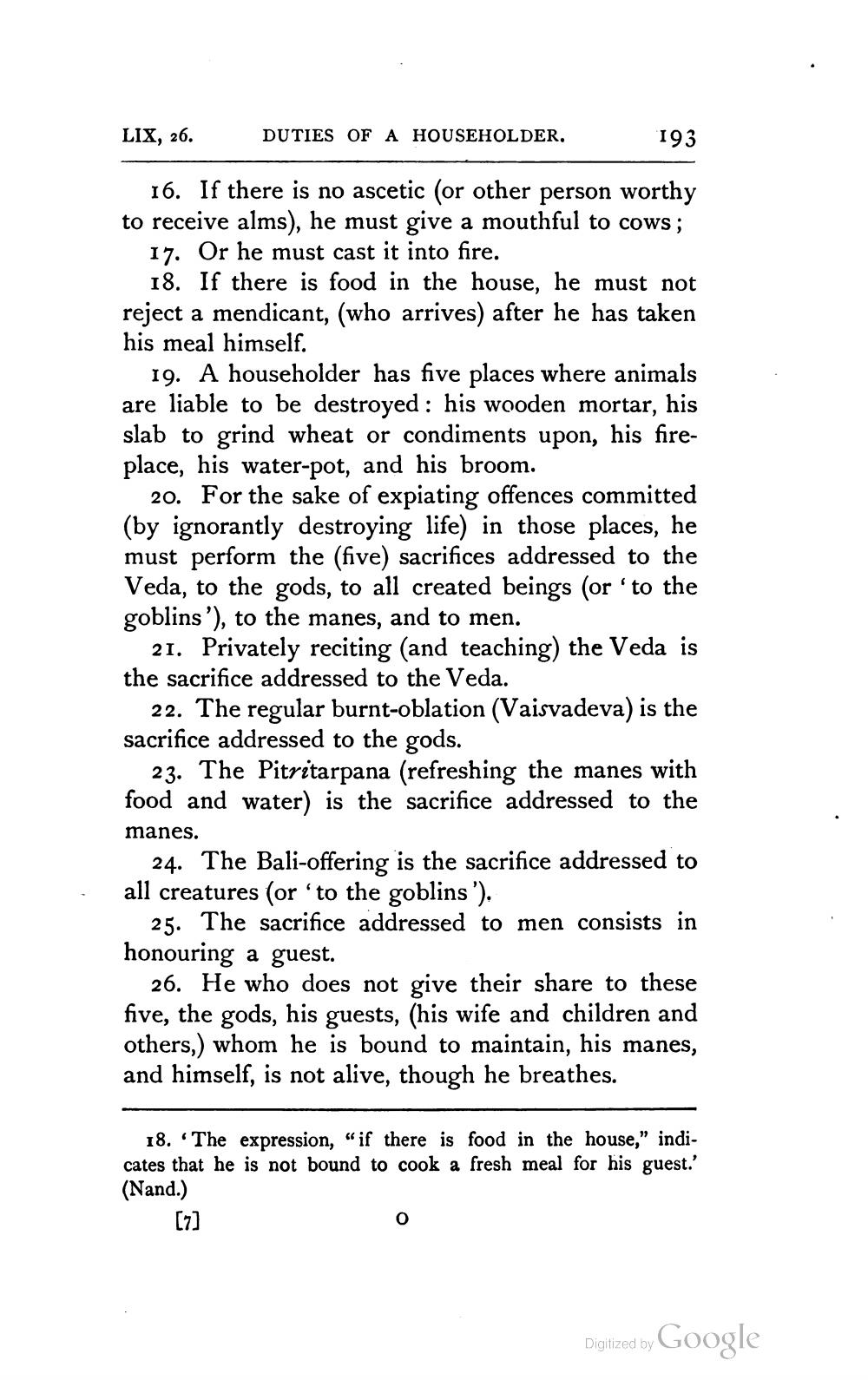________________
LIX, 26.
DUTIES OF A HOUSEHOLDER.
193
16. If there is no ascetic (or other person worthy to receive alms), he must give a mouthful to cows;
17. Or he must cast it into fire.
18. If there is food in the house, he must not reject a mendicant, (who arrives) after he has taken his meal himself.
19. A householder has five places where animals are liable to be destroyed : his wooden mortar, his slab to grind wheat or condiments upon, his fireplace, his water-pot, and his broom.
20. For the sake of expiating offences committed (by ignorantly destroying life) in those places, he must perform the (five) sacrifices addressed to the Veda, to the gods, to all created beings (or 'to the goblins'), to the manes, and to men.
21. Privately reciting (and teaching) the Veda is the sacrifice addressed to the Veda.
22. The regular burnt-oblation (Vaisvadeva) is the sacrifice addressed to the gods.
23. The Pitritarpana (refreshing the manes with food and water) is the sacrifice addressed to the manes.
24. The Bali-offering is the sacrifice addressed to all creatures (or 'to the goblins '),
25. The sacrifice addressed to men consists in honouring a guest.
26. He who does not give their share to these five, the gods, his guests, (his wife and children and others,) whom he is bound to maintain, his manes, and himself, is not alive, though he breathes.
18. The expression, “if there is food in the house," indicates that he is not bound to cook a fresh meal for his guest.' (Nand.)
[7]
Digitized by Google




